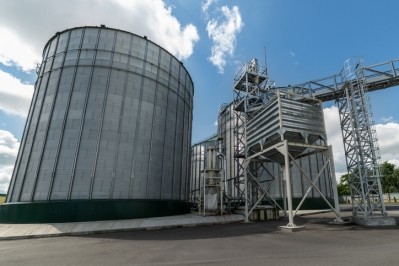US organic feed crop demand sparks industry partnership

The Nebraska-based company announced a partnership with the farmer-to-farmer network Farmer’s Business Network, Inc. (FBN) at the end of June. That arrangement included an anchor strategic investment in AgriSecure.
AgriSecure was founded by members of long-term farming families that had moved to organic production, said JP Rhea, founder and CEO of AgriSecure. The goal was to share insights gathered during the process and support producers interested in changing production methods.
“The organic food [production] market has been growing – it’s up 300% [since 2002],” he told FeedNavigator. “It’s a huge growth market and acreage has been growing as well – primarily in fruit and nuts and specialty produce – but the higher growth rates [are] in livestock. The demand for organic feed grains has been growing [and] we have the opportunity to sell corn for $9 [a bushel] not $3 and yet we’re importing most of it.”
There is an unmet market need for domestically produced organic feed grains and AgriSecure’s platform was designed to support or help feed crop producers attempting to address that need, he said. “It’s helping to meet that rapidly growing demand for organic feed grains, to do it at a reasonable scale and do it professionally – and frankly with the current economics it’s a way to stay in business,” he added.
“We’re pretty comfortable with a good sustainable rotation it would take about 1m acres to meet current demand and that’s going to take a little while to get there,” he said. “We’re moving quickly, but there’s tremendous demand. The organic market growing at 8% and the protein side at close to 20%, so we’re pretty confident that we could add a lot of production.”
“We also think that we can streamline production and simplify the supply chain – know it’s a real challenge for feed mills and end users trying to find these crops and quantity and quality,” he said.
Partnership with FBN
The partnership with Farmers Business Network is another way of providing support to producers, said Rhea. In addition to helping source organic inputs for producers, FBN also brings a data science program and established relationships with users of organic feed grains.
“They have the ability to provide us with a lot of resources and help us move more quickly,” he said.
AgriSecure does not broker grain, although the partnership with FBN includes some of those services, he said. However, the company does have a series of industry contacts and processing facilities looking to source domestically produced, organic feed grains.
“Grain marketing for a traditional grain farmer can be fairly straightforward,” he said. “With organics, you have to have a broader rotation of crops and you probably can’t take it to the local elevator – it’s about contacts and AgriSecure can play a role in lining up [those contracts], and for the end users in the feed industry it makes sourcing a lot easier.”
AgriSecure efforts
The company’s options were designed to support producers who are in the process of transitioning farms or acres to organic production, those exploring the process or who are already producing organic feed grains, said Rhea.
“We lay out plans for them if they want to transition, [based on] their farm and their cash flow,” he said. “The transition period can impact cash flow, and we help them identify the right crops and markets, and put together a complete plan to handle the certification work and supply inputs and market their crops.”
The company usually works with medium to larger producers looking to transition or produce on 1,500 to 11,000 acres, he said. It has focused its efforts on feed production in the Midwest or Grain Belt region of the US, but that is expanding east and north at this point.
“As a newer company we’re trying to swim in our lane and stay focused where the founding group has the strongest knowledge but we’re expanding – we’re going north into South Dakota, North Dakota, Minnesota and east into Illinois,” he said. “For the right opportunity, we’d work with anybody.”
Feed crop demand and traceability
The company was interested in working with feed crop producers because many employees have a background in that kind of production, said Rhea.
“We are all traditional corn, soybean farmers [and] we’re comfortable and familiar with those crops, but that’s where the biggest demand is,” he said. “We’re importing almost 80% of soy and half of the corn into this country. We have a huge growth opportunity in organic to meet current demand let along growth demand.”
Improving the amounts of organic feed grains being grown domestically also can improve traceability for feed users given the current questions on the origins of some imported grains, he said. “All crops are delivered with full traceability through the supply chain,” he added.











